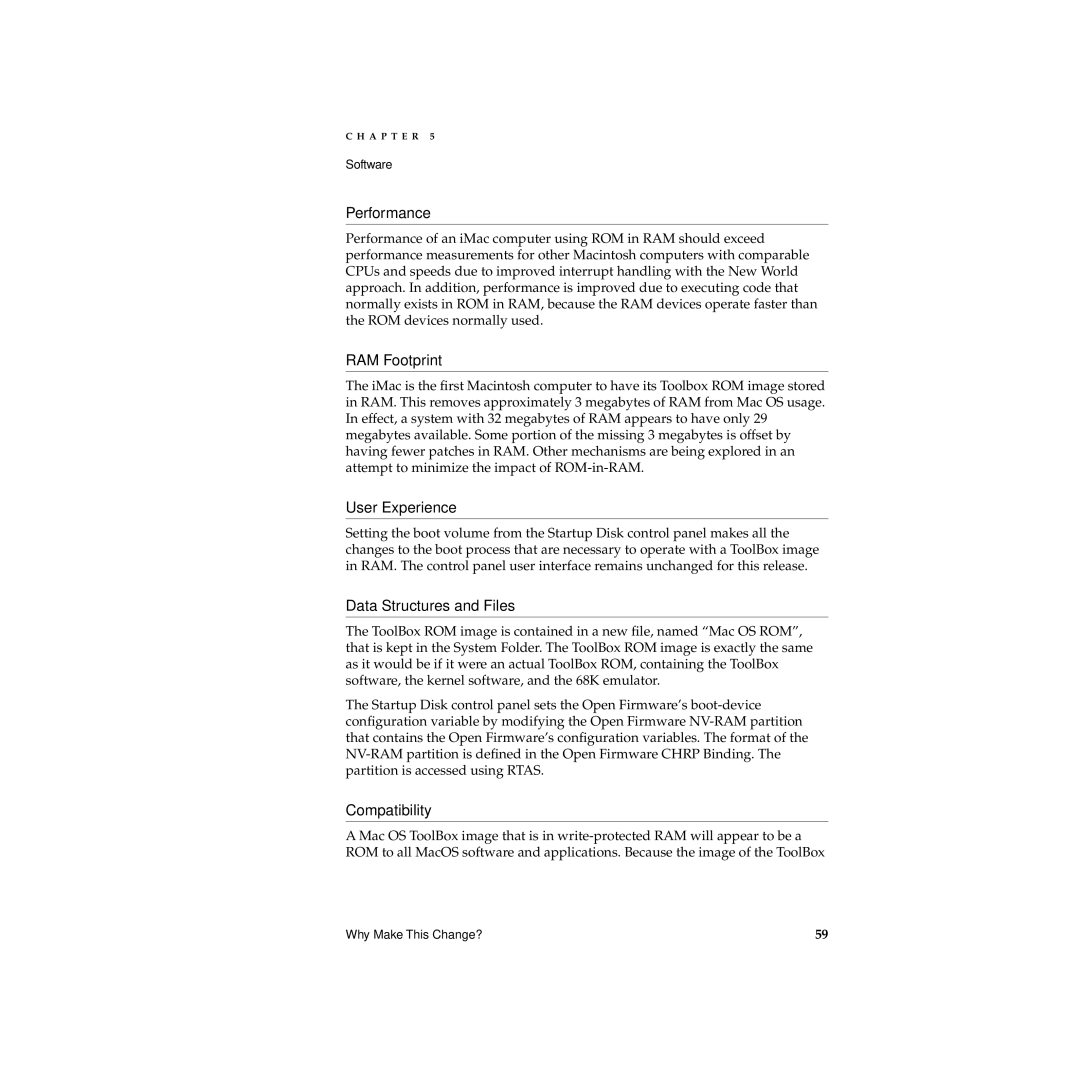
C H A P T E R 5
Software
Performance
Performance of an iMac computer using ROM in RAM should exceed performance measurements for other Macintosh computers with comparable CPUs and speeds due to improved interrupt handling with the New World approach. In addition, performance is improved due to executing code that normally exists in ROM in RAM, because the RAM devices operate faster than the ROM devices normally used.
RAM Footprint
The iMac is the first Macintosh computer to have its Toolbox ROM image stored in RAM. This removes approximately 3 megabytes of RAM from Mac OS usage. In effect, a system with 32 megabytes of RAM appears to have only 29 megabytes available. Some portion of the missing 3 megabytes is offset by having fewer patches in RAM. Other mechanisms are being explored in an attempt to minimize the impact of
User Experience
Setting the boot volume from the Startup Disk control panel makes all the changes to the boot process that are necessary to operate with a ToolBox image in RAM. The control panel user interface remains unchanged for this release.
Data Structures and Files
The ToolBox ROM image is contained in a new file, named “Mac OS ROM”, that is kept in the System Folder. The ToolBox ROM image is exactly the same as it would be if it were an actual ToolBox ROM, containing the ToolBox software, the kernel software, and the 68K emulator.
The Startup Disk control panel sets the Open Firmware’s
Compatibility
A Mac OS ToolBox image that is in
Why Make This Change? | 59 |
